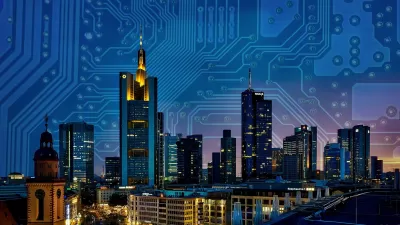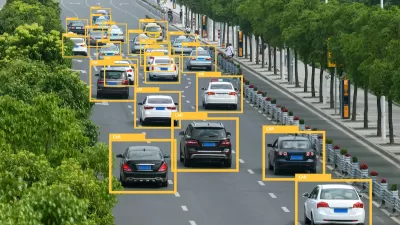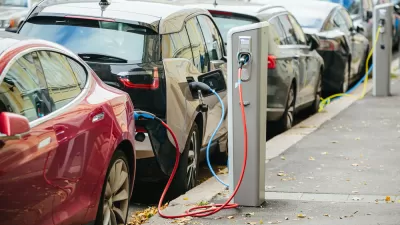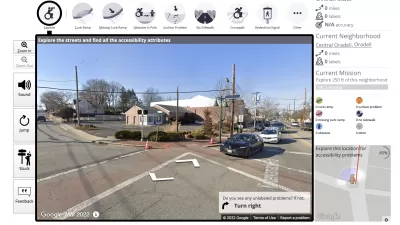As the pandemic forces cities to redefine their priorities, mayors around the country express their plans and hopes for technology and the 'smart city' of the future.

The 'smart city' concept, writes Danielle McLean, promises to "eliminate the hassles of urban life and make cities safer, greener and more efficient." But as the pandemic shifted priorities and technology did not deliver on its bold promises, Smart Cities Dive "wanted to find out what being a smart city means today and how cities are implementing smart-city initiatives throughout the country."
The article details responses from 15 large U.S. cities about their smart city plans, the limitations and challenges they've encountered in implementing technological fixes, and how they approach inequality.
In general, these respondents say the goal of smart cities is to improve residents’ quality of life. Local leaders say they achieve that goal by using technology and data responsibly as tools for decision-making and experimentation.
McLean describes the answers of mayors from around the country who describe the benefits they hope to derive from technology, including more efficient use of city resources, improved quality of life for residents, and enhanced public engagement. Many mayors express the hope that smart cities will prove to be more equitable and 'human-centered.'
FULL STORY: 15 city leaders define a 'smart city'

Alabama: Trump Terminates Settlements for Black Communities Harmed By Raw Sewage
Trump deemed the landmark civil rights agreement “illegal DEI and environmental justice policy.”

Planetizen Federal Action Tracker
A weekly monitor of how Trump’s orders and actions are impacting planners and planning in America.

The 120 Year Old Tiny Home Villages That Sheltered San Francisco’s Earthquake Refugees
More than a century ago, San Francisco mobilized to house thousands of residents displaced by the 1906 earthquake. Could their strategy offer a model for the present?

Ken Jennings Launches Transit Web Series
The Jeopardy champ wants you to ride public transit.

BLM To Rescind Public Lands Rule
The change will downgrade conservation, once again putting federal land at risk for mining and other extractive uses.

Indy Neighborhood Group Builds Temporary Multi-Use Path
Community members, aided in part by funding from the city, repurposed a vehicle lane to create a protected bike and pedestrian path for the summer season.
Urban Design for Planners 1: Software Tools
This six-course series explores essential urban design concepts using open source software and equips planners with the tools they need to participate fully in the urban design process.
Planning for Universal Design
Learn the tools for implementing Universal Design in planning regulations.
Clanton & Associates, Inc.
Jessamine County Fiscal Court
Institute for Housing and Urban Development Studies (IHS)
City of Grandview
Harvard GSD Executive Education
Toledo-Lucas County Plan Commissions
Salt Lake City
NYU Wagner Graduate School of Public Service





























